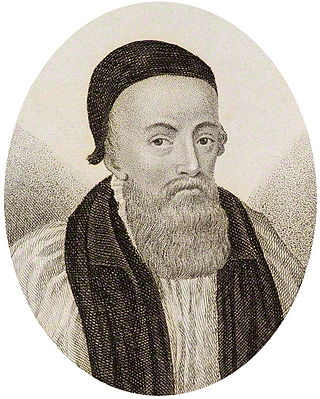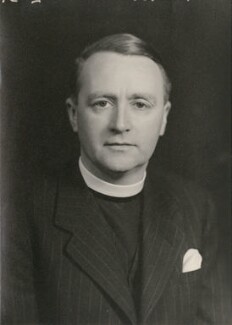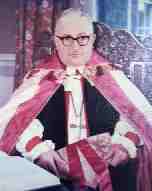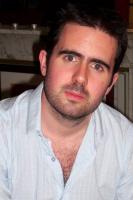
John Henry Coates was an Australian mathematician who was the Sadleirian Professor of Pure Mathematics at the University of Cambridge in the United Kingdom from 1986 to 2012.
Ed Parish Sanders was an American New Testament scholar and a principal proponent of the "New Perspective on Paul". He was a major scholar in the scholarship on the historical Jesus and contributed to the view that Jesus was part of a renewal movement within Judaism. Sanders identified himself as a "liberal, modern, secularized Protestant" in his book Jesus and Judaism; fellow scholar John P. Meier called him a postliberal Protestant. He was Arts and Sciences Professor of Religion at Duke University, North Carolina from 1990 until his retirement in 2005.

Charles Gore was a Church of England bishop, first of Worcester, then Birmingham, and finally of Oxford. He was one of the most influential Anglican theologians of the 19th century, helping reconcile the church to some aspects of biblical criticism and scientific discovery, while remaining Catholic in his interpretation of the faith and sacraments. Also known for his social action, Gore became an Anglican bishop and founded the monastic Community of the Resurrection as well as co-founded the Christian Social Union. He was the chaplain to Queen Victoria and King Edward VII.

The Hulsean Lectures were established from an endowment made by John Hulse to the University of Cambridge in 1790. At present, they consist of a series of four to eight lectures given by a university graduate on some branch of Christian theology.

Sir Thomas Goodrich was an English ecclesiastic and statesman who was Bishop of Ely from 1534 until his death.

Eric Symes Abbott KCVO was an English Anglican priest and academic administrator. He only spent three years in parish ministry, before a career as a chaplain and academic administrator. He was warden of Lincoln Theological College from 1936 to 1945, and then dean of King's College, London from 1945 to 1955. He moved into secular leadership as warden of Keble College, Oxford from 1956 to 1960. He final post was as Dean of Westminster from 1959 until he retired in 1974.
Lewis Guy Melville Thorpe FRSA FRHistS was a British philologist and translator. He was married to the Italian scholar and lexicographer Barbara Reynolds.

Ian Thomas Ramsey was a British Anglican bishop and academic. He was Professor of the Philosophy of Religion at the University of Oxford, and Bishop of Durham from 1966 until his death in 1972. He wrote extensively on the problem of religious language, Christian ethics, the relationship between science and religion, and Christian apologetics. As a result, he became convinced that a permanent centre was needed for enquiry into these inter-disciplinary areas; and in 1985 the Ian Ramsey Centre for Science and Religion at the University of Oxford was set up to promote discussion on the problems raised for theology and ethics by developments in science, technology and medicine.

Walter Howard Frere was a co-founder of the Anglican religious order the Community of the Resurrection, Mirfield, and Bishop of Truro (1923–1935).

Joseph Armitage Robinson was a priest in the Church of England and scholar. He was successively Dean of Westminster (1902–1911) and of Wells (1911–1933).
Sir Edwyn Clement Hoskyns, 13th Baronet, was an English Anglican priest and theologian.
Sydney Hall Evans, CBE was the Dean of Salisbury in the Church of England from 1977 until his retirement in 1986.
Dennis Eric Nineham was a British theologian and academic, who served as Warden of Keble College, Oxford, from 1969 to 1979, as well as holding chairs in theology at the universities of London, Cambridge, and Bristol.

Leonard Noel Fisher was an Anglican bishop in the second quarter of the twentieth century. After parish work in England and military service in the First World War, he served as bishop in two African dioceses, Lebomo and Natal, before retiring in 1951.
Frederick John Foakes Jackson was a Church historian. For thirty-four years he taught at Jesus College, Cambridge, serving as dean from 1895 to 1916. Then, at the age of 61, he became the Briggs Professor of Christian Institutions at Union Theological Seminary, New York City, finally becoming emeritus in 1933. He is probably best known for the massive five volume work The Beginnings of Christianity—an edition, translation, commentary, and study of the Acts of Apostles—that he conceived and edited with Kirsopp Lake.
Arthur Lukyn Williams (1853–1943) was a Hebrew New Testament scholar at Jesus College, Cambridge. He was also a Christian apologist active in Christian mission to Jews.
Frederic Charles Cook was an English churchman, known as a linguist and the editor of the Speaker's Commentary on the Bible.

Tom Greggs FRSE is a British theologian and the Marischal Professor of Divinity at the University of Aberdeen.

Alan Philip Frederick Sell FSA, FRhistS was a minister of the United Reformed Church and was formerly Professor of Christian Doctrine and Philosophy of Religion at the United Theological College, Aberystwyth in Wales. An author in the fields of philosophy, theology, ethics and history he held prominent positions in various ecumenical organizations including the World Alliance of Reformed Churches.

Alan England Brooke, D.D. was an English academic.













